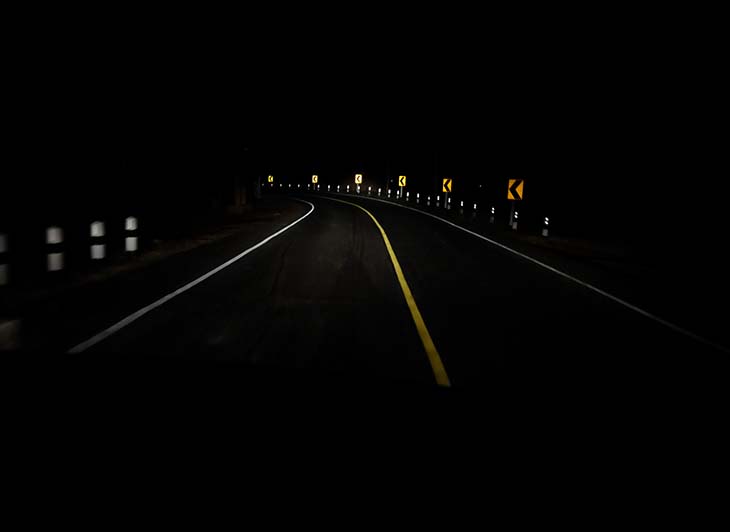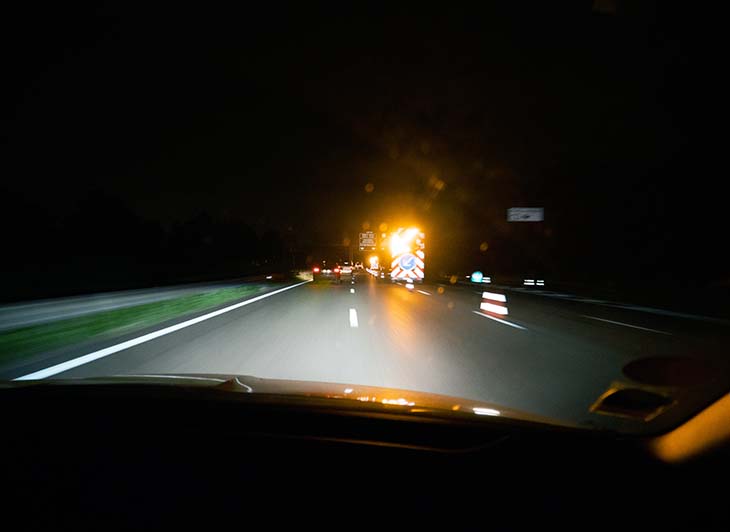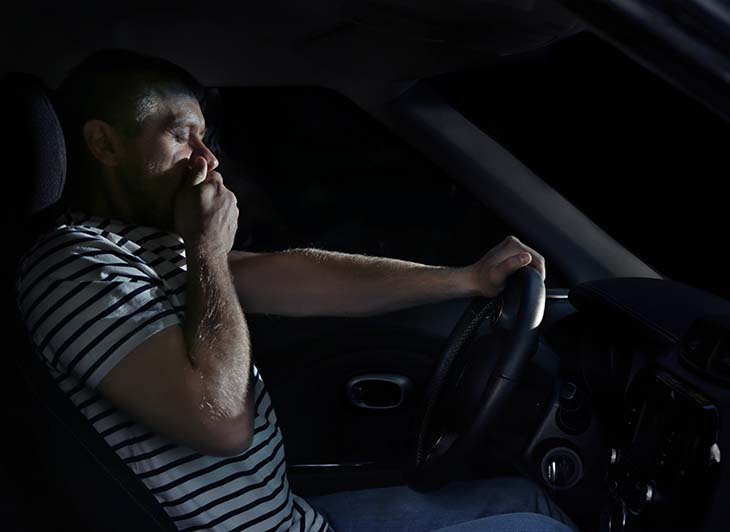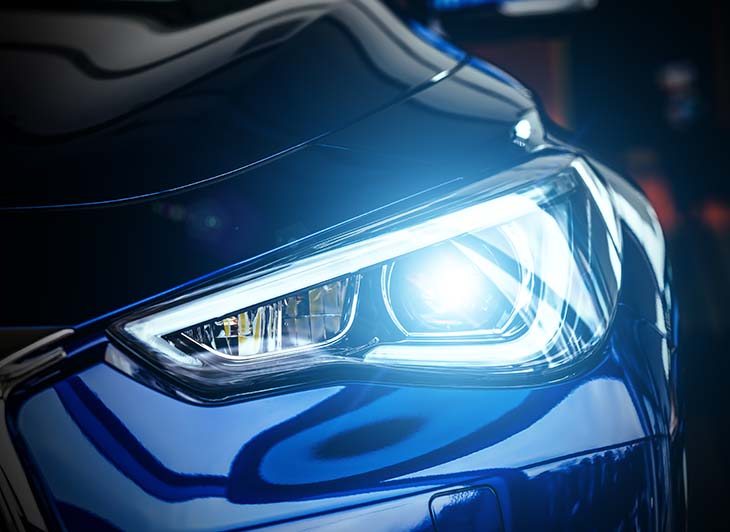Driving at night can be a challenge, especially if you’re a nervous driver or new driver and have just recently passed your test. Afterall, most driving lessons take place in the daytime, as does the test itself. This can make night driving more difficult than you expect.
But whether you are a seasoned night driver or someone who wants to better navigate the lamplit roads, here are our top tips for driving at night.
1. Match your speed to the road illumination

During the day, it’s easy to spot hazards and obstacles on the road ahead. At night, it’s not so simple (obviously!).
The good news is that most roads will have streetlights overhead meaning you can clearly see the road ahead. But not every road is lit at night. These tend to be stretches of A road or motorway, or smaller roads heading through the countryside or forests.
When the road is less illuminated, you should be driving a lot slower. This will give you a lot more time to react to any sudden obstacles that appear ahead of you. This is especially important on those quiet rural roads, where animals can dart out ahead of you without warning. While it’s not illegal to hit an animal, it’s not very nice for your conscience/karmic well-being, and can make for one hell of a mess to clean.
2. Don’t be tempted by the empty roads
One of the best things about night driving is the lack of traffic on the roads. No congestion, less irritating drivers cutting you up or slowing you down. The open road ahead of you might tempt you to put your foot down, especially if you have a car with a bit of power that you rarely get to use.
But speeding is illegal because it is dangerous. Not just to other drivers, but to yourself. The faster you go, the less control you have of the car. So if you have to break or swerve sharply, you can easily have an accident. And, at night-time, there is less of a chance that another driver will see your accident and report it to the emergency services. So have a think about your speed.
3. Slow down for road works

Night-time is when the majority of road works are done on motorways. While the workers take advantage of the quieter roads and lack of traffic, you may be tempted to just drive normally past the flashing amber lights of road crews.
But you should be aware that there has been a real crackdown on speeding past road works. Which makes sense, as the crews making our motorways better deserve to be able to do their hard work without fearing for their lives. Even without the common senses aspect, there are now average speed cameras and smart motorways closely monitoring how people drive past road works. Expect a ticket and points on your licence should you choose to ignore the warning signs.
4. Plan your route
Driving at night can also mean having to avoid road closures. If you don’t plan your journey in advance, you could find yourself suddenly faced with a diversion that takes you on back roads and side streets you are unfamiliar with. By checking the route in advance, you can see if there are any closures planned for the roads your taking. You can then find a quicker alternative than what the diversion will offer, meaning you are spending less time on the road, and won’t be tiring yourself out too much.
5. Keep an eye out for cyclists
Unfortunately, not every cyclist on the road has the right lights on their bike or wears luminous night clothing to make themselves stand out.
That means it’s up to you to keep an eye out for these dangerous moving obstacles on the road. If you do spot a cyclist on the road who is practically invisible, slow down and make sure you give them plenty of room as you pass. They may want to risk their lives on the road. That doesn’t mean you should be the person to make them see sense.
6. How tired are you?

Driving at night is tiring. Having to focus on the darkened roads ahead can put a strain on your eyes, more so than any other time of day or type of weather. The lateness of the hour can also have an effect, and you may be wishing you were in your bed rather than on the M26.
If you are feeling tired, there are a few things you can do. The first is to put the radio on a bit louder and turn the aircon down or onto cold. It’s easy to feel snug in your car if the heater is a bit too warm. Just make sure you choose a radio station a bit more upbeat. Not “Lullaby FM”.
The second is to try and share the driving with someone else. Swapping around can give your eyes a break. But you shouldn’t use this time to have a nap. You should be awake and chatting with your fellow driver to help keep them energised.
But the third and most important tip, is to take a break if you need to. Pull over somewhere safe and have a cup of coffee, an energy drink, or even a nap. If you are falling asleep, you are dangerous. Even if it’s just for a fraction of a second. Take a nap – even if it’s just a 10-minute power nap. You are guaranteed to wake feeling much more refreshed.
7. Don't toot your horn
Our final tip is that you should definitely not be honking your car’s horn at night-time, especially in residential areas. Why? Because it’s against the law! Now, the chances of you getting pulled up on this by the police is small. But if you were to get a telling off the police or even a fine, for something so silly, it would be very hard to explain to your other half or family!
Do you need new wheels to tackle the road at night?
When driving at night a reliable car is essential. After all, the last thing you want is to be stuck broken down on a dark, unfamiliar road. At Creditplus, we have flexible finance packages to suit all budgets. If you want a car you can trust, apply online today to speak to a friendly customer consultant.





 Facebook
Facebook Twitter
Twitter Instagram
Instagram LinkedIn
LinkedIn Youtube
Youtube